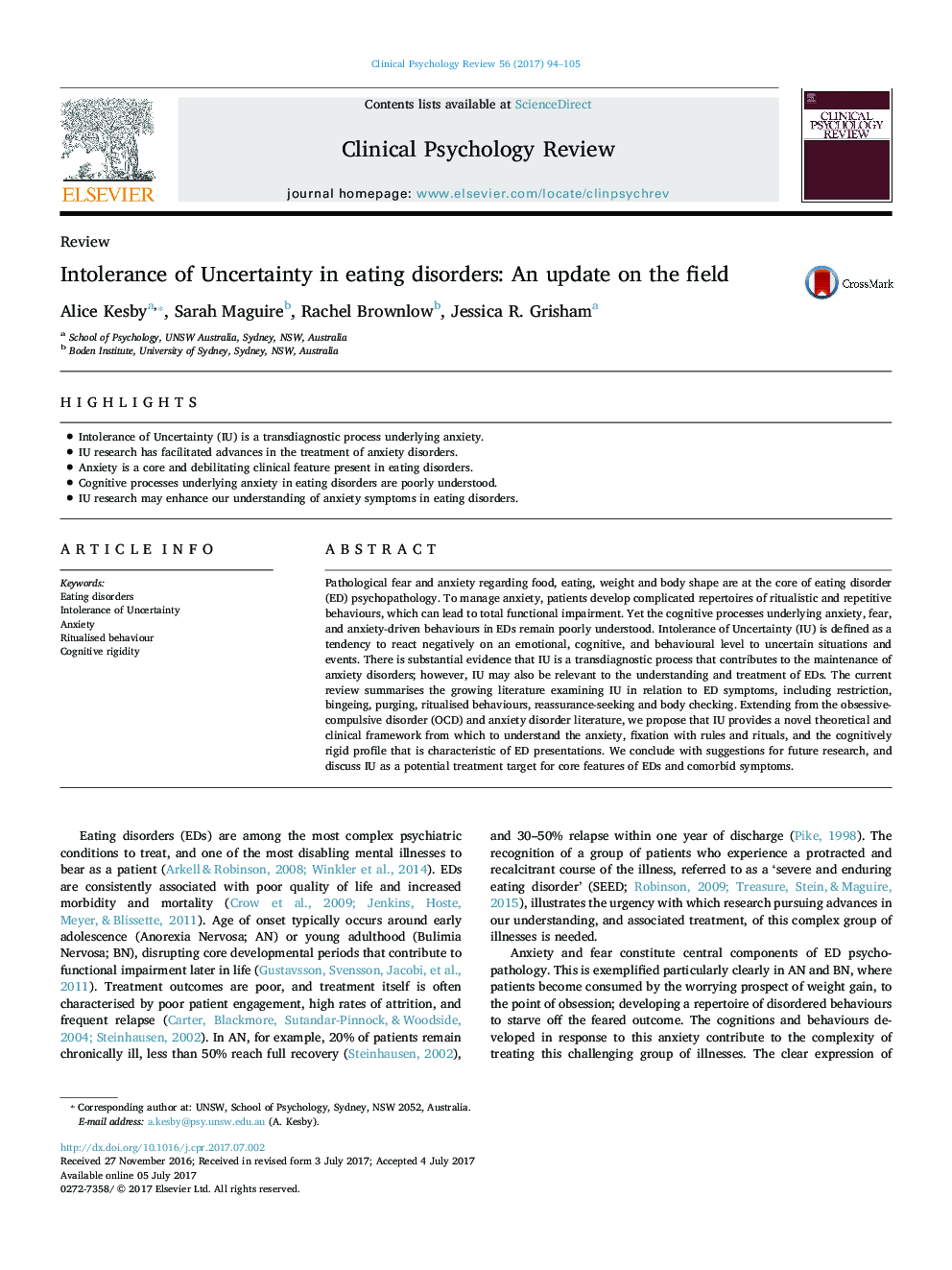| کد مقاله | کد نشریه | سال انتشار | مقاله انگلیسی | نسخه تمام متن |
|---|---|---|---|---|
| 5038530 | 1472835 | 2017 | 12 صفحه PDF | دانلود رایگان |
- Intolerance of Uncertainty (IU) is a transdiagnostic process underlying anxiety.
- IU research has facilitated advances in the treatment of anxiety disorders.
- Anxiety is a core and debilitating clinical feature present in eating disorders.
- Cognitive processes underlying anxiety in eating disorders are poorly understood.
- IU research may enhance our understanding of anxiety symptoms in eating disorders.
Pathological fear and anxiety regarding food, eating, weight and body shape are at the core of eating disorder (ED) psychopathology. To manage anxiety, patients develop complicated repertoires of ritualistic and repetitive behaviours, which can lead to total functional impairment. Yet the cognitive processes underlying anxiety, fear, and anxiety-driven behaviours in EDs remain poorly understood. Intolerance of Uncertainty (IU) is defined as a tendency to react negatively on an emotional, cognitive, and behavioural level to uncertain situations and events. There is substantial evidence that IU is a transdiagnostic process that contributes to the maintenance of anxiety disorders; however, IU may also be relevant to the understanding and treatment of EDs. The current review summarises the growing literature examining IU in relation to ED symptoms, including restriction, bingeing, purging, ritualised behaviours, reassurance-seeking and body checking. Extending from the obsessive-compulsive disorder (OCD) and anxiety disorder literature, we propose that IU provides a novel theoretical and clinical framework from which to understand the anxiety, fixation with rules and rituals, and the cognitively rigid profile that is characteristic of ED presentations. We conclude with suggestions for future research, and discuss IU as a potential treatment target for core features of EDs and comorbid symptoms.
Journal: Clinical Psychology Review - Volume 56, August 2017, Pages 94-105
